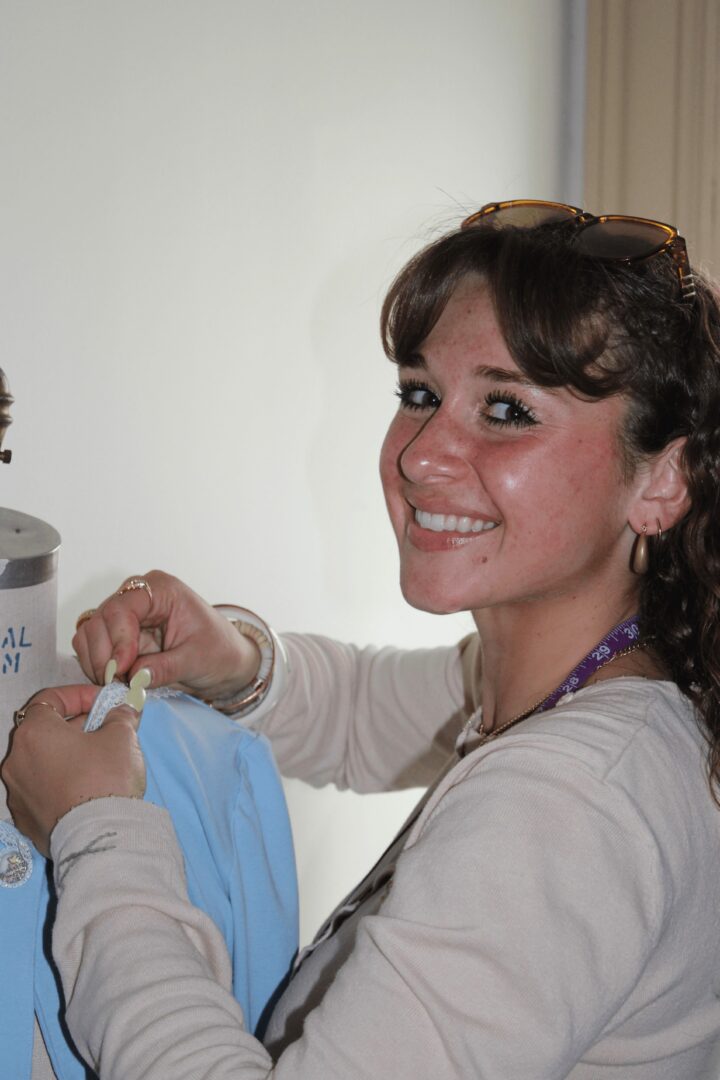We recently connected with Angela Thomas and have shared our conversation below.
Alright, so we’re so thrilled to have Angela with us today – welcome and maybe we can jump right into it with a question about one of your qualities that we most admire. How did you develop your work ethic? Where do you think you get it from?
I get up at 4:50 a.m. every day. Early, right? It didn’t always sound too appealing to me either.
People often tell me I have a strong work ethic or that I put my whole heart into what I do, but honestly, I never really thought about it much until recently.
I’ve had this routine since I was 16. And while I genuinely love early mornings, there are still days when that alarm feels unbearable. But there’s one main factor that continuously seems to keep me going.
A few months ago, I was home visiting my parents for the weekend. My dad – David was taking phone calls all day from work for a case, and from my siblings. That moment really made me pause and start to reflect on who he is as a person.
When my dad sets his mind on something, he gives it his full 110%, no excuses, no complaints. Growing up, I’d watch him wake up at six, sometimes even five to get ready for work. He’s done this probably for a solid 30 years. After long, exhausting days, he’d still show up to pick my sister and I up from dance at nine at night, still steady, and collected.
He used to be an amateur golfer and once dreamed of going pro. Even now, after long days at the office, he’ll squeeze in time to practice before a tournament. Through every hard day, tired mornings, difficult situations, and every stressful season, I’ve never once heard him complain in my life.
One thing he always said to me growing up was, “Put your blinders on.” Which means don’t get distracted by what everyone else is doing. Focus on your own path. That line stuck with me more than I realized. Throughout my younger years, in High School, and up until College.
My dad’s work ethic doesn’t stop at his career. It shows in how he shows up for people, his kids, his friends, his clients. He’ll drop anything to help with our personal issues, legal questions, or just life advice. He’s the kind of person who makes you feel taken care of simply because that’s how he lives, fully, devotedly, and without complaint.
He once gave up his dream of going pro in golf to build a more stable life for his family. In law school, he wasn’t always the most attentive and focused. He spent many late nights trying to focus and memorize questions for the bar, even if it meant getting up 17 times for snacks in between.
So when that 4:50 a.m. alarm goes off and I want to roll over and close my eyes again, I think of him. My work ethic comes from watching him in his life. Not just through what he has achieved, but how he carries himself through it all humble, grounded, and grateful.
It is so important to find someone you admire for their work ethic, whether thats a family member, friend, or someone you look up to online. They remind you what it means to stay driven, stay focused, and to never stop working hard for what you want.
He is the reason I work hard, but more importantly, why I love working hard. Any time someone compliments my work ethic,I thank my Dad.
Find your David Thomas.
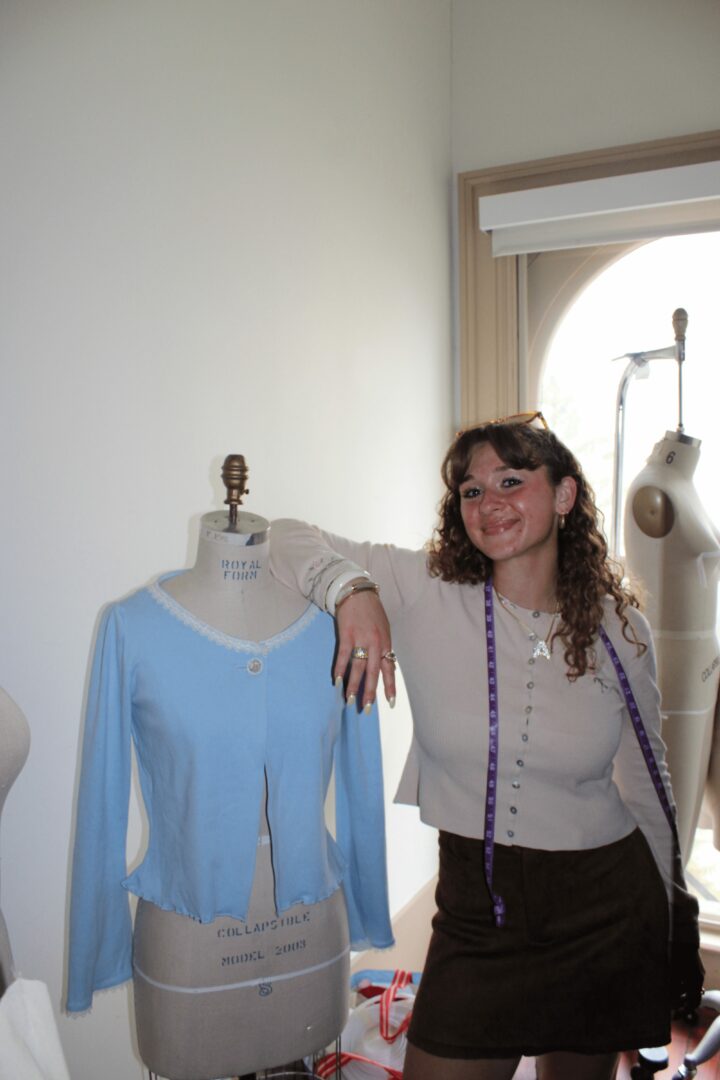
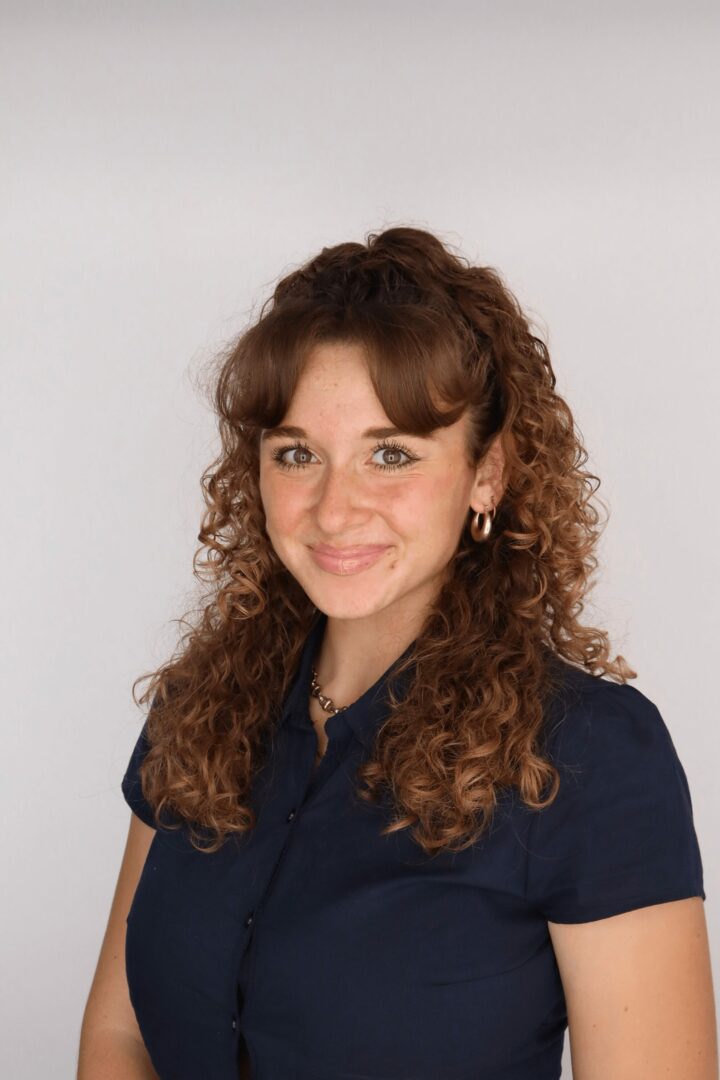
Thanks for sharing that. So, before we get any further into our conversation, can you tell our readers a bit about yourself and what you’re working on?
I grew up the youngest of nine kids, twelve now, counting the in-laws. The first question I usually get when I tell people that is, “All from the same parents?” And yes, we are — all full siblings. It’s probably one of the most surprising things people learn about me, but it plays a huge role in who I am, my personality, and why I do what I do.
I was mainly raised in the arts. I trained in pre-professional ballet for over ten years, spent my summers at art camps, took piano lessons, and had a mom who always encouraged creativity and time outdoors. I grew up well-rounded, active in sports, but especially drawn to the arts.
Watching my eight older siblings pursue their own creative paths from music and musical theater to ballet and art gave me an early glimpse into what passion looked like. It made me curious about how I could express myself in my own way.
One of the biggest influences in my interest in fashion and what I do now has been my sister-in-law, Jessica, who’s really more like a sister to me. She’s a fashion designer in Los Angeles and has been in our family for as long as I can remember. The moment I showed interest in what she did, she opened up her world to me sharing everything about the industry, her creative process, and her love for design. Hearing her speak so passionately about her work was captivating. To be honest, she has inspired me more than she probably realizes.
In high school, I took an online course in fashion design through the Art Institute of Chicago, which solidified my decision to study fashion design at Indiana University Bloomington. Since then, I’ve been part of IU’s annual Fashion Show modeling and helping behind the scenes and this upcoming spring, I’ll get to debut my own collection.
Being surrounded by so many creative people and new ideas has opened my eyes to how deeply intertwined art and fashion really are. I’ve learned that at its core, art is about connection and connecting ideas, people, and stories, just as designers do through their collections.
For me fashion hasn’t just been about the clothes, but about people. About emotion, memory, and the invisible threads that weave us to one another. I have always believed that what we wear tells a story, who we are, where we have been, and what we want the world to see in us from our clothes. I wear mainly thrifted clothing or hand me downs, not just because they’re cute, but because they connect me to my family, and other people who once wore what I wear today and I think that’s beautiful.
Fashion today often feels impersonal, with trends dictating everything and originality being pushed aside. I want to be a designer who brings authenticity and connection back into the heart of fashion. I want someone to look at a piece I’ve made and feel something, a spark of nostalgia, comfort, maybe even healing.
I try to pour pieces of myself into every design. My experiences, my thoughts, the people who’ve shaped me, they all live in the details. Every color, every texture, every imperfect stitch carries meaning. I never want to make my designs “crazier” just to fit into someone else’s standard of what fashion should be. I want to make something real.
One of the things I’m most proud of is that I’ve learned to protect my vision. There’s pressure to conform, to make things louder or trendier, but I’ve found beauty in staying true to simplicity, in letting quiet authenticity speak for itself. The kind of beauty that doesn’t need to beg for attention.
For me, fashion isn’t about chasing what’s next. It’s about slowing down and honoring what already is with the emotion, the story, and the person behind the fabric. My designs are a reminder that art doesn’t have to shout to be powerful. It just has to be you.
At the end of the day, I want my work to remind people that they matter, that their stories, their struggles, their quiet moments of hope are worth being seen and celebrated. Because that’s what fashion should be a mirror of our humanity, designed with purpose.
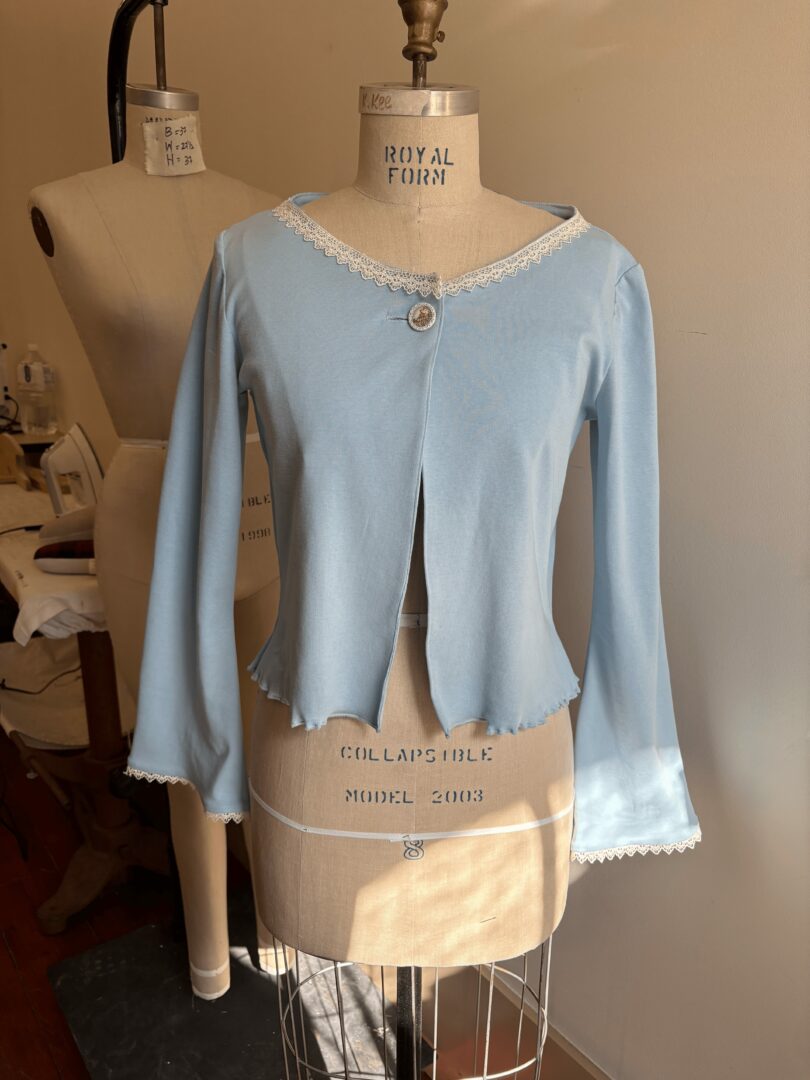
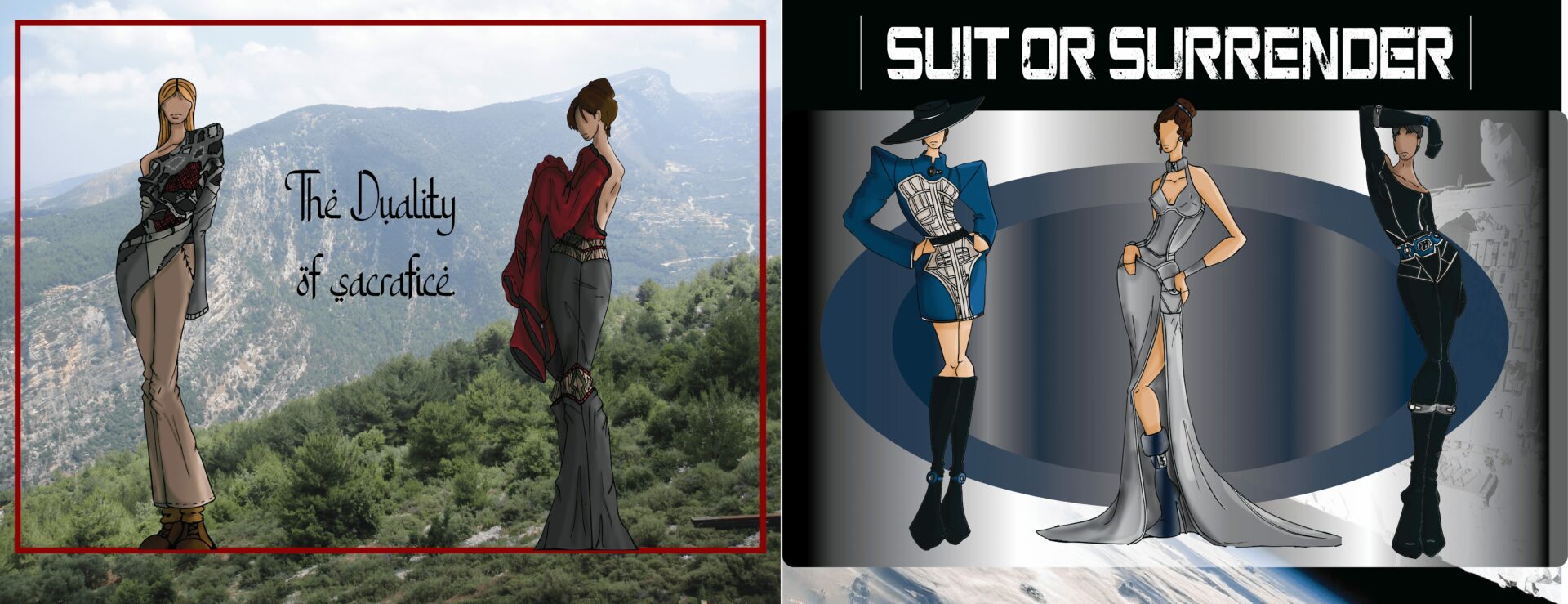
There is so much advice out there about all the different skills and qualities folks need to develop in order to succeed in today’s highly competitive environment and often it can feel overwhelming. So, if we had to break it down to just the three that matter most, which three skills or qualities would you focus on?
The most important things I have learned in my life thus far and continue to remind myself of are
There will always be someone better than you, and that’s okay.
Never lose your sense of self in the middle of the chaos. Don’t conform just because you don’t fit into someone else’s “standard.”
Learn to love and enjoy the process, even when its difficult.
It’s so easy to get caught up comparing yourself to others, especially when it feels like everyone is moving faster or achieving more. As I said before one of the best pieces of advice I’ve ever received came from my dad: “Put your blinders on.” It’s something I live by. If you spend all your time looking at what everyone else is doing, you’ll never move forward. You’ll get stuck watching other people pass you, wondering, and doubting yourself. But when you keep your focus on your own lane, even when you feel like you’re behind, you often end up winning the race. The beauty is, it’s not about being first. It’s about finishing on your own time, with hard work.
When I first entered the world of fashion, I felt a strong pressure to change who I was. For reference, I’m a very extroverted, bubbly, and positive person. But many people I met were more quiet and reserved, which isn’t a bad thing, but it made me feel like I had to tone myself down to fit in. For a while, I worried that being “too much” would make me seem out of place. But I learned something important: when you lose your sense of self, it shows. It shows in your energy, in your soul, and especially in your work. Your designs and your ideas lose the heart of it.
When you’re fully yourself, your work will thrive. It carries warmth, purpose, and meaning. So now, I’d rather be the one who laughs too loud, who finds joy in the smallest things, than the one who dims themselves just to blend in. Because your light is the very thing that makes you, you.
And finally, enjoy the process. Even in the hardest moments, especially in the hardest moments there’s something sacred about them. One day, you’ll look back and realize those struggles shaped you in the best possible way. I’m grateful for every challenge I’ve faced, in my work and in my life, because they’ve given me perspective, resilience, and a deeper sense of appreciation for the world around me. Sometimes the greatest challenge can be the greatest reward.
You get to experience life, in all its chaos, beauty, and imperfection, and that in itself is such a gift. Try to enjoy and love where you are, even when it hurts, or when it’s uncertain. Be grateful for the process, because the energy you put into the world will always find its way back to you.
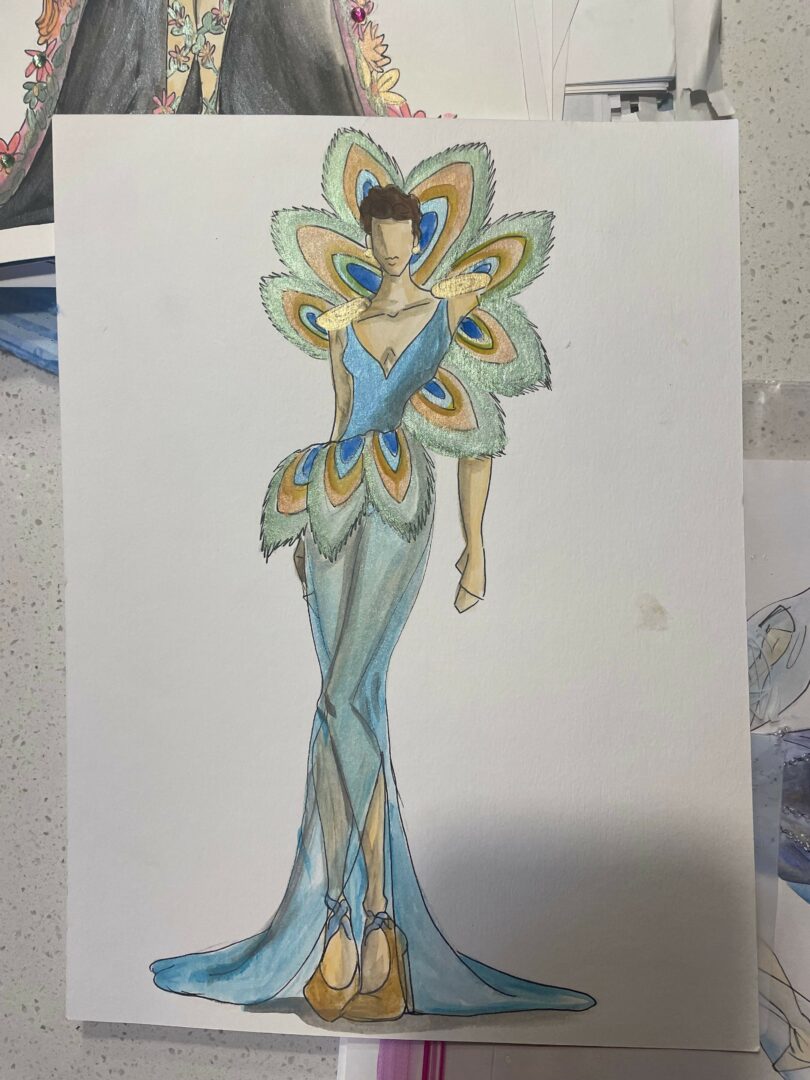
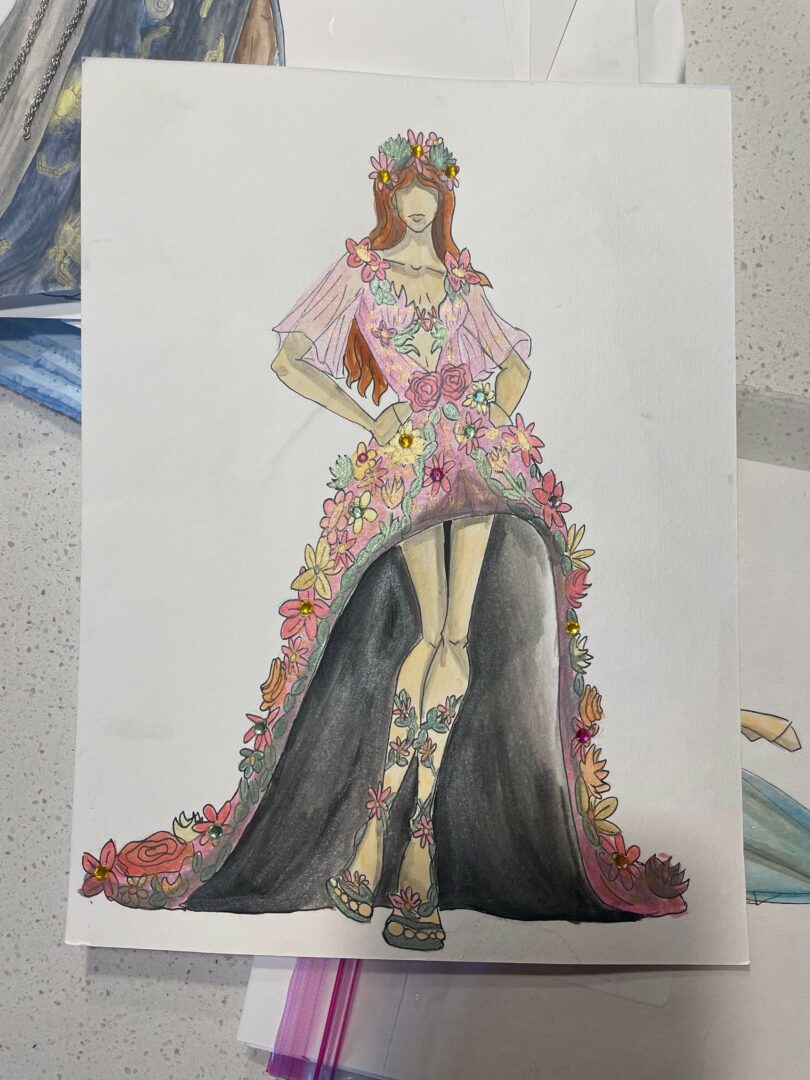
What was the most impactful thing your parents did for you?
There are so many ways I could answer this question. My parents have done more for me in my life than I could ever truly explain. But as I read it, a few things stood out immediately.
My parents have been my two biggest role models. They showed me how to love.
My parents met when they were just 14 and 16. They dated through college, got married at 23 and 26, and have now been married for 39 years and counting. I’ve often been told that I love very deeply, and every time I hear that, I think of them.
I think of my dad flying across the country to surprise my mom on their anniversary when they were apart. I think of my mom making his favorite dinner and surprising him with tickets to a show she knew he’d love. I think of the small things too, like how my dad wakes up ten minutes early every morning to make sure my mom has the first warm cup of coffee, or how my mom writes “I love you” on the bathroom mirror in her dark red lipstick so he starts the day motivated and full of love.
For years, my dad had “For My Theresa” written on a sticky note on his laptop, a small reminder of why he worked so hard every day. That one still makes me emotional till this day.
They taught me the purest kind of love, how to love deeply, when to love, and who to love.
They also taught me how to forgive.
I remember someone recently telling me I was “too forgiving” after a painful experience in my life. It made me stop and think, but I couldn’t imagine living in a world without forgiveness. We all make mistakes, and at some point, we all need grace. I’d want someone to forgive me too for something in my past.
That understanding came from my parents. They never shied away from apologizing to one another. After every fight, no matter how small, one of them would always step forward to make peace. And they raised us the same way. If I broke a glass, disobeyed, or disappointed them, they always forgave. They taught me that forgiveness isn’t weakness, but instead it’s one of the strongest, most human things we can do. A simple “I forgive you” can change a life.
And maybe the most important lesson of all: family comes first.
Growing up as the youngest of nine siblings, my family has always been my foundation. They were, and still are my best friends. Even my oldest brother, who’s eighteen years older than me, is someone I feel incredibly close to. Each sibling has a unique personality, something special to offer the world, and my parents raised us to see that in one another.
Family was never optional in our home, it was everything. My parents instilled in us that loyalty, love, and support begin with family. And they were right. There is no one more loyal, more protective, or more understanding than my siblings. And to be honest, I don’t think they know how much I love and appreciate every, single, one of them.
I often get emotional thinking about my family and how much I wish I could thank my parents every single second of every day for countless things, but especially for these, for teaching me how to love, how to forgive, and how to hold family close. In a world where those values can feel rare, I’m endlessly grateful that I grew up in a home where they were the heart of everything.
Contact Info:
- Instagram: Main Account: angela.maryrose Artistic Account: Angelarose.t
- Linkedin: https://www.linkedin.com/in/angela-thomas-570b53249/
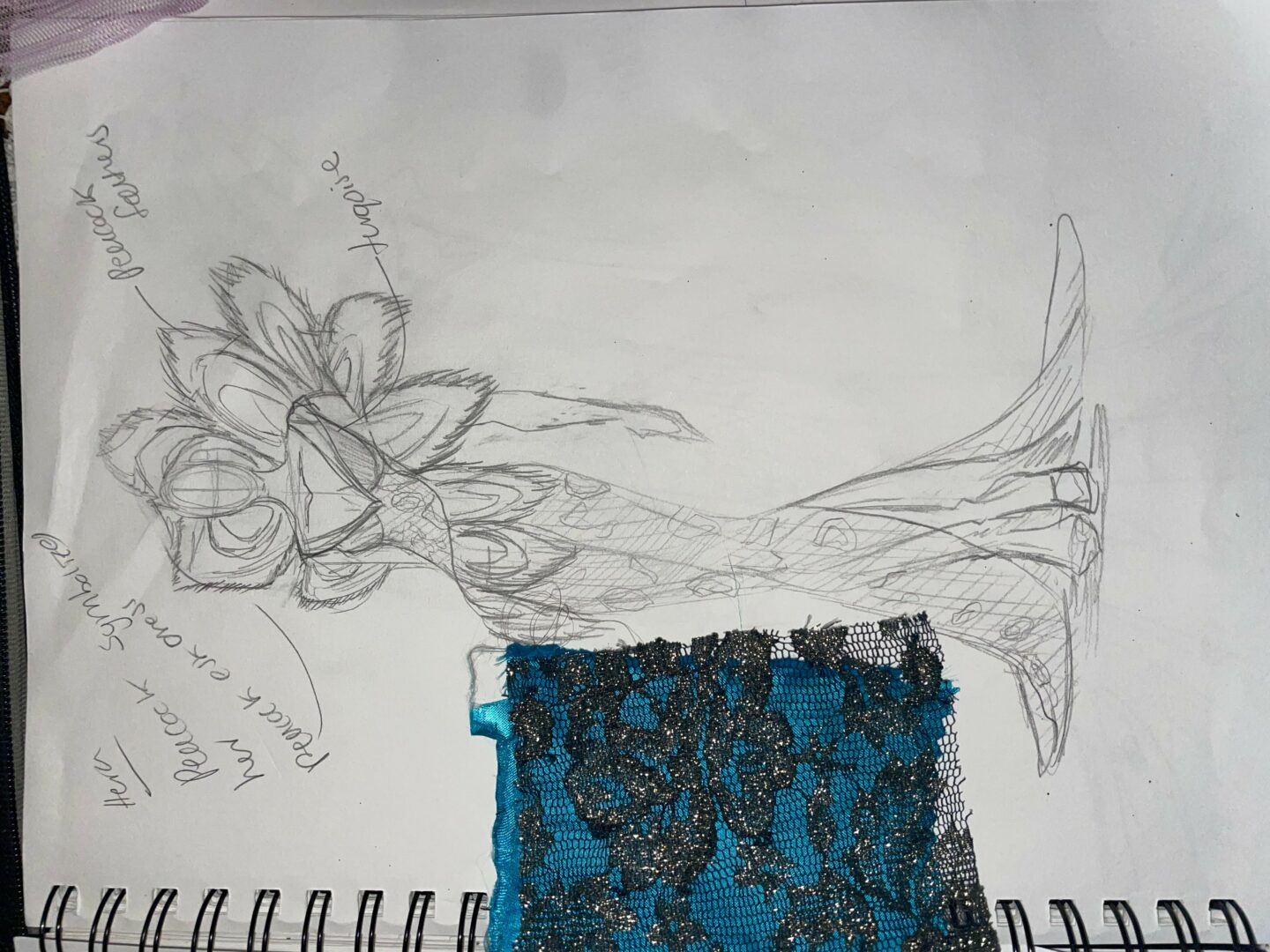
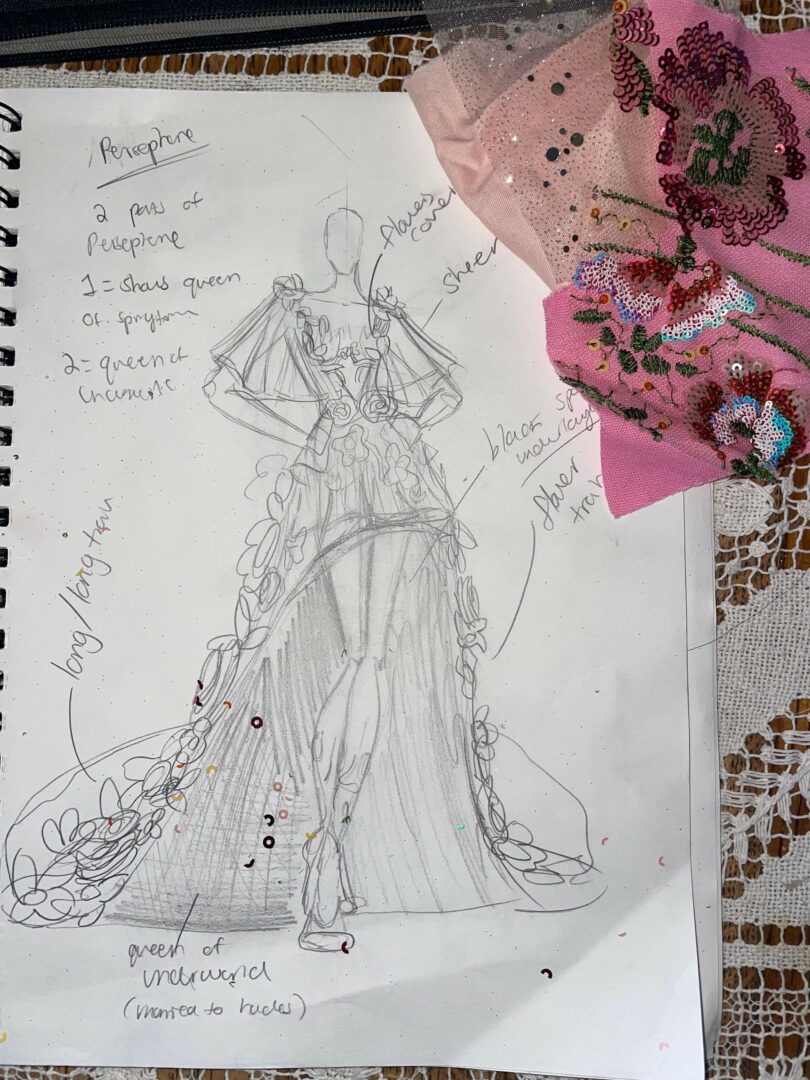
Image Credits
Image Credits: Maizy Swanson
so if you or someone you know deserves recognition please let us know here.

